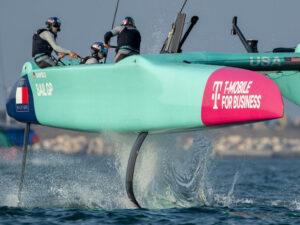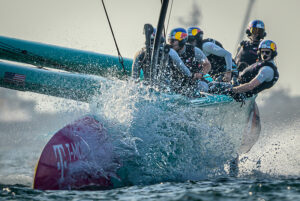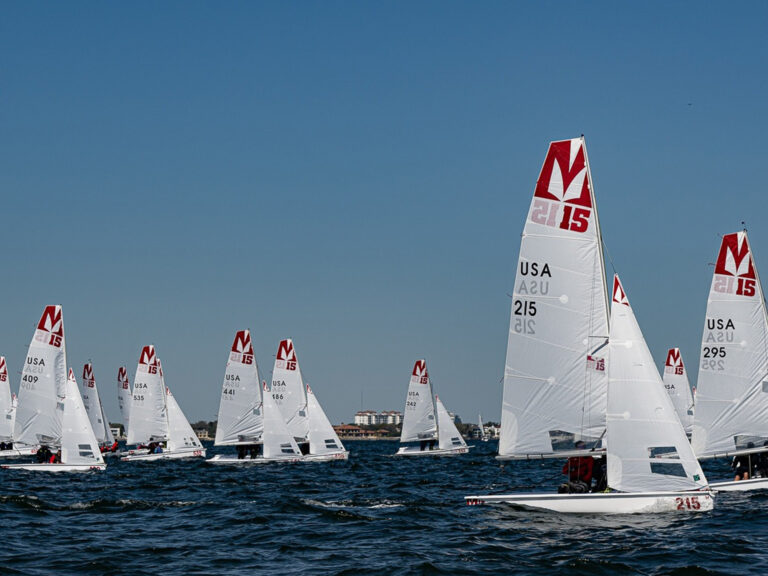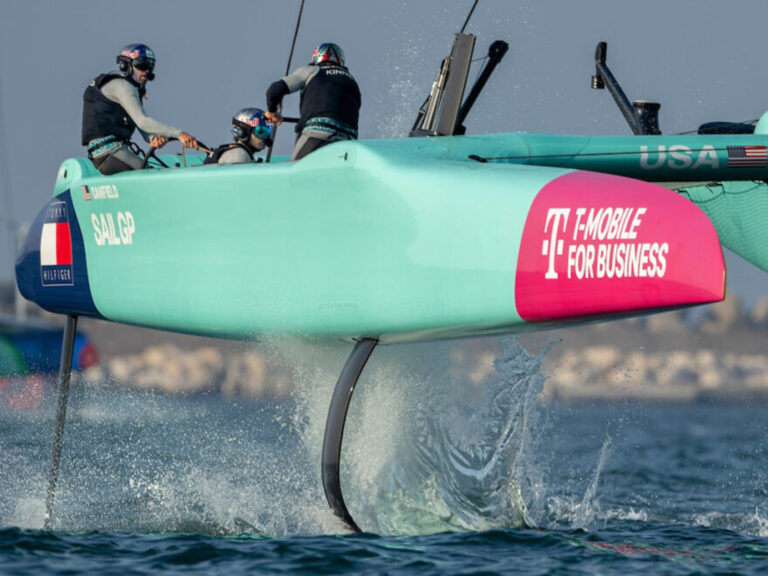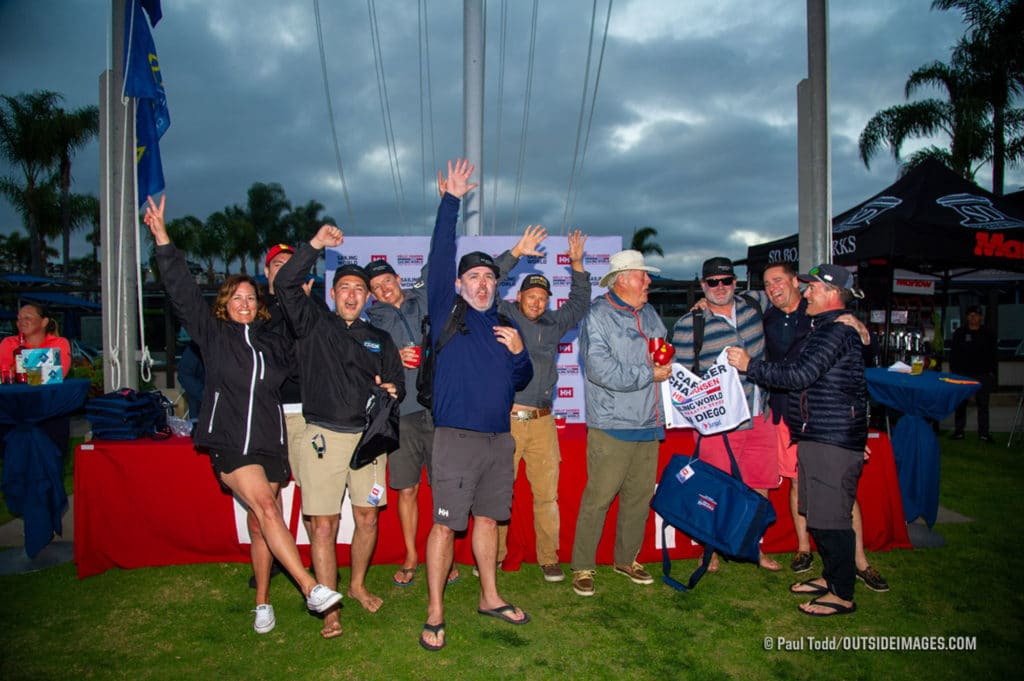
The Helly Hansen Sailing World Regatta Series San Diego finished just as it started—with brilliant sunshine and a building sea breeze, conditions that local sailors expect this time of year. The ideal racing conditions also allowed the race committees of San Diego and Coronado yacht clubs to complete a full set of races over the three-day regatta.
For Eduardo Saenz and his teammates on Nimbus, the three-race final day gave them an opportunity to put up a few more top finishes and win their regatta by a considerable 12-point margin over Jeff Janov’s Minor Threat. For Saenz and his teammates from Mexico City, Mexico, the key was working the wind shifts and, of course, staying out of trouble.
“This was our third time sailing J/70s in San Diego,” Saenz said, “And taking the correct shifts was key. Our tactician, Carlos Robles, was mostly correct…he almost didn’t miss a shift.”
Saenz said he and his teammates, using the regatta as a training session for the upcoming J/70 Mexican National Championship, were conservative on the starting line and focused on positioning themselves in clear-wind lanes as soon as possible. The courses were short, so clear air was difficult to come by. Downwind, Saenz said, they felt slower than some of the other top boats, but upwind they were even on speed. Their race-winning gains were made managing the wind.
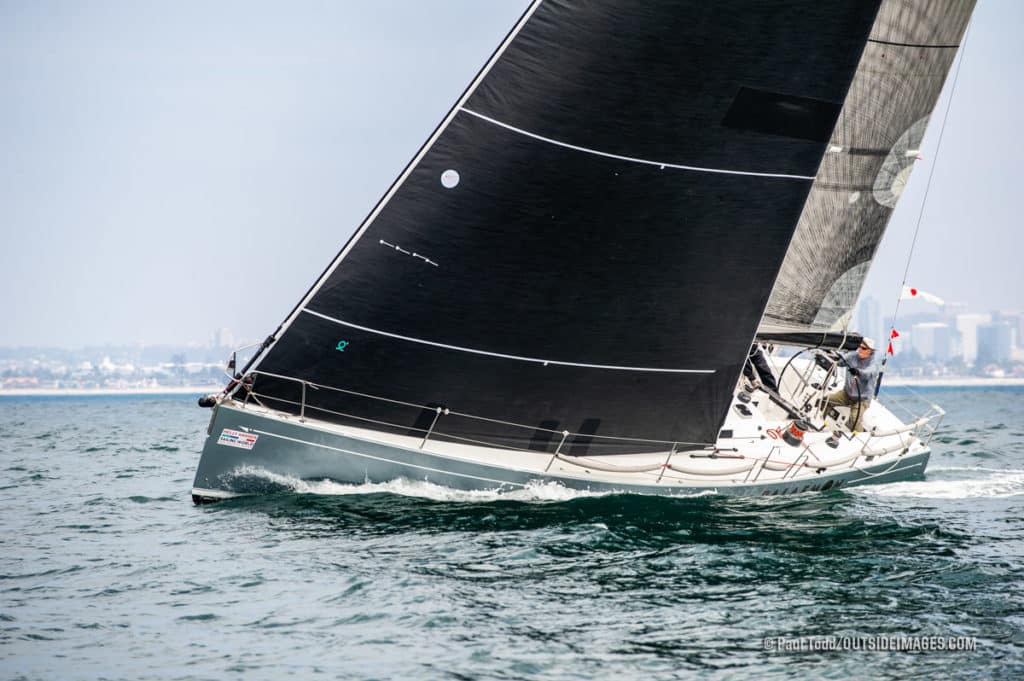
They were fourth in the first race today, which Dave Ullman and his team on USA 3 won to tighten up the top-three standings, but Nimbus won the second race and that was that—it was their best race of the regatta Saenz said: “We had a bad start and did a quick tack that put us in front, and then we just covered the fleet and the competition. Downwind we were fast in that race and that helped us hold the lead.”
His one go-fast tip after three days of South Bay racing: “Staying in the right mode, never getting too high or too low—just keeping the boat going fast and that’s basically it.”
Boatspeed was also a dominating factor in the International 14 fleet, which Terence Gleeson and his top-shelf crew JP Barns used to run away with the International 14 division and the West Coast Championship title with three wins on the final day.
“We had to fight for one of them, one of them we horizoned, and the last one we hit a light spot, right before the last jibe to the finish and almost put it in,” Gleeson said. “That would have been a bad way to end it. We were both in the water, scrambling, and thankfully, JP saved it.”
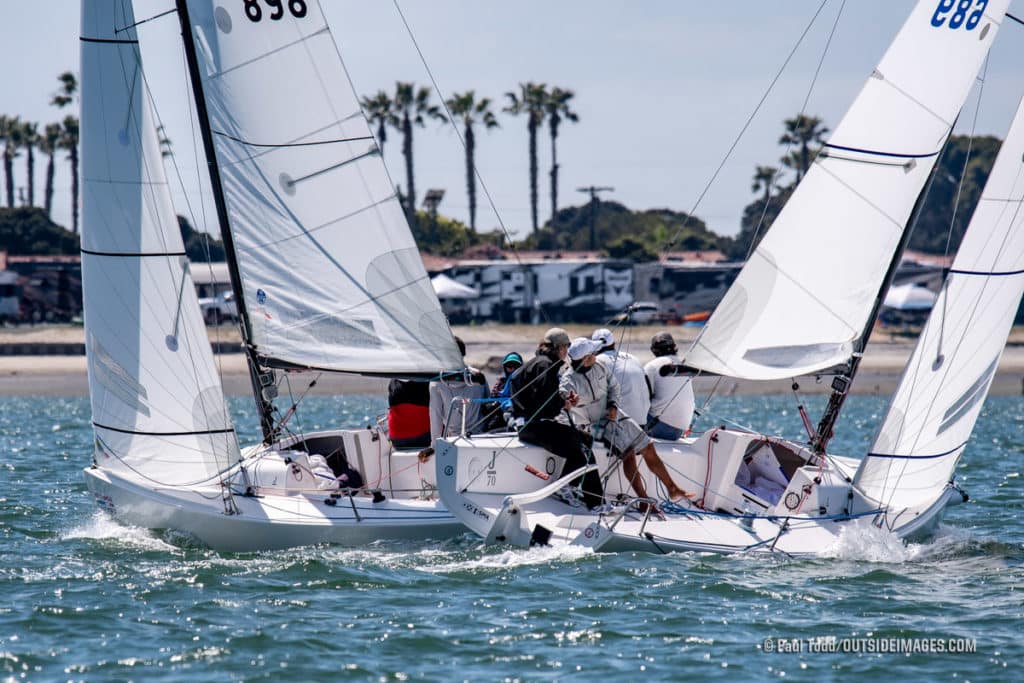
Gleeson got his new boat, Dunder Pit, before the onset of the Covid pandemic and used the time away from sailing to make the boat what he says is now “absolutely perfect.”
“We tried to make this one special,” Gleeson said. “We have a new rig, new sails and new foils which are super important. These are all more important than hull shape.”
The new rudder foil, he said, makes the boat challenging to sail, but when they have the boat perfectly tuned, “it’s a world of a difference.”
“[The rudder] is thinner and smaller and being able to manage the boat on the smaller rudder is really difficult,” Barnes said. “It’s much less forgiving. We’ve worked hard; it’s been a cumulative process of boat handling development that has allowed us to be able to handle this small of a rudder.”
Sharing the same racecourse were the regatta’s Flying Dutchman and Formula 18 catamaran sailors. Paul Scoffin and Pavel Ruzica won nine of 10 races, demonstrating why they are regular faces at the top of Flying Dutchman world championships. In the Formula 18s, James Orkin and Mike Roeser won in similar fashion, winning all but one of the class’s eight races.
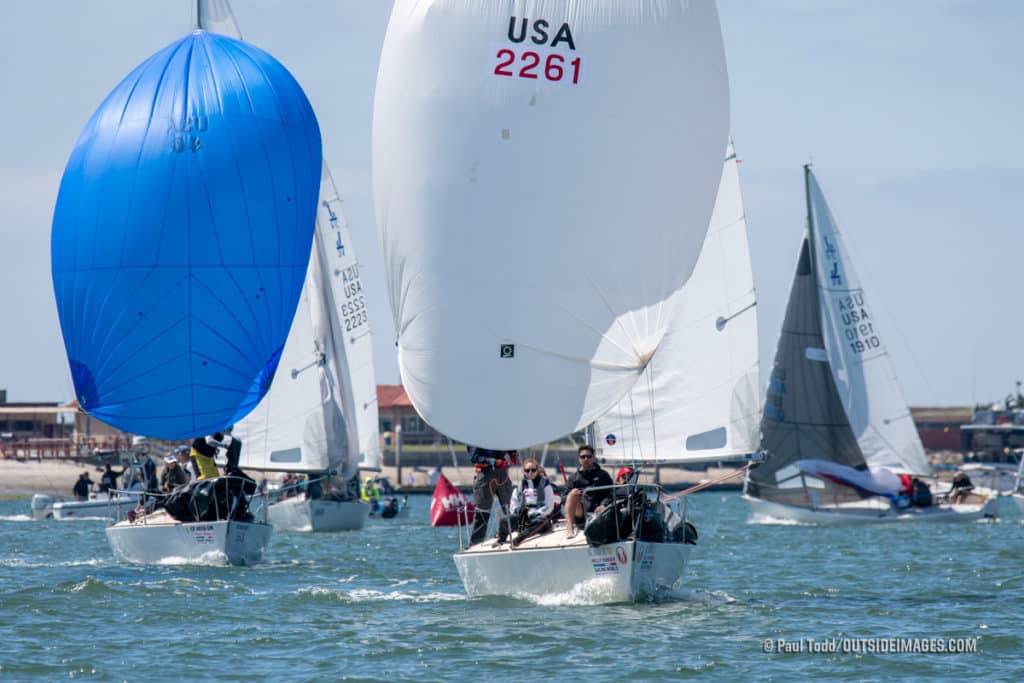
“Our goal going to the regatta was getting reacquainted with the boat,” Orkins said. “We haven’t been doing as much racing so it was to get into the groove we had 3 years ago.”
Orkin said that while his scoreline would indicate an easy win, the shifty conditions on South Bay were plenty challenging.
“Some people like to bang the corners and I like sailing the shifts,” Orkin said, “this is where having a good crew is key—he looks for the holes in the course.”
Deke Klatt’s J/24 Jaded won six of seven races, and Klatt says Ventura-based team was liking the flat water and moderate breezes over the weekend. Tactically, he said, getting to and winning the left side of the course paid dividends. “It was challenging,” Klatt said, “and today [Sunday] was about protecting the left for the big puffs and keeping tabs on the other boats.”
Klatt’s MVP, he added, was his fiancé Claudia Gottstein, who subbed in at the last minute into the genoa-trimmer’s role—not an easy job on the J/24.
“Today we made it hard on her,” Klatt said. “I think we tacked eight or nine times on one beat, but that was key—to be able to tack and go where we wanted.”
On the ocean course, the ever-competitive Etchells fleet sailed the second event of its 2022 Bill Bennett West Coast Championship. The top-three places went right down to the final race, with Thomas Carruthers, Bill Hardesty, and Jeff Reynolds putting one final win into their score line to tip the tie-breaker with Chris Busch’s Elizabeth.
Chick Pyle’s team on the Beneteau 36.7 Kea sailed a perfect six-win regatta to earn their 11th Helly Hansen Sailing World Regatta Series victory. Warren Gross’s Silhouette was equally dominant in the Beneteau 40.7 class with five of six race wins. Bruce Stone, helming Stewart Cannon’s J/105 J-OK put up three race wins to take the class by 4 points.
In the seven-boat ORC division, Rudolph Hasl’s team on the impressive J/145 Palaemon was flawless, winning all six of its races to earn top boat and ultimately the regatta’s big title. Selected as the Helly Hansen Sailing World San Diego Regatta’s Overall Winner, Hasl and his team earned a berth in the Helly Hansen Sailing World Caribbean Championship in October, where they will compete against other top winners from the series.



